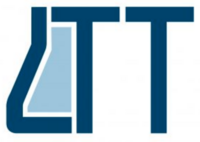
Pathology courses in Ballarat
Course providers in Ballarat
The following providers offer Pathology courses in Ballarat.
















Career Pathfinder
Skills shortages + AI Exposure
Discover in-demand careers and understand how each role may be impacted by AI and automation.
- See in-demand occupations across Australia
- Check AI Exposure ratings
- Compare training duration and average income
Common questions
Absolutely! The Certificate III in Pathology Collection is designed for beginners, making it an ideal choice for those with no prior experience in healthcare. The course covers foundational skills like venepuncture, specimen handling, and workplace safety, while also developing soft skills like patient communication. Clinical placements provide hands-on experience, allowing students to apply their knowledge in real healthcare settings. Many graduates start with no background in healthcare but leave feeling confident and job-ready.While further training would be required for career advancement, pathology collection is an excellent doorway to the healthcare industry for those who have no industry experience.
 Sarah Knuckey
Sarah Knuckey
Missing veins is a common part of learning to perform venepuncture, and every student experiences it during training. Sarah Knuckey from Lab Tech Training told us that students start on silicone arms to build basic techniques before advancing to supervised practice on peers. Instructors provide detailed feedback to help students improve and gain confidence. Mistakes are treated as learning opportunities, not failures. With time, repetition, and expert guidance, students develop the precision and confidence needed to perform venepuncture effectively in real-world settings.
 Sarah Knuckey
Sarah Knuckey
Further reading


Certificate III in Pathology Collection: Everything You Need to Know
10th February 2025
Most popular health courses
29th June 2022All courses
- HLT37415 Certificate III in Pathology Assistance
- HLT37215 Certificate III in Pathology Collection
- MSL40122 Certificate IV in Laboratory Techniques
- HLTINF005 Maintain Infection Prevention for Skin Penetration Treatments
- Bachelor of Biomedical Science (Medical Science)
- Bachelor of Medical Laboratory Science
- Bachelor of Science (Genetics and Genomics)
- MSL50122 Diploma of Laboratory Technology (Chemistry)
- Bachelor of Medical Science
- Bachelor of Science (Immunology)
- Bachelor of Science (Microbiology and Immunology)
- Bachelor of Advanced Science (Honours) (Microbiology)
- Master of Medical Science
- HLTSS00059 Venous Blood Collection Skill Set
- Master of Science (Cancer)
- Master of Public Health (Research)
- Graduate Certificate in Clinical Epidemiology
- Bachelor of Laboratory Medicine (Honours)
- Master of Science (Biomedical Science)
- Graduate Diploma of Health Research
- Master of Biomedical Science
- HLTPAT001 Identify and respond to clinical risks in pathology collection
- Bachelor of Laboratory Medicine
- Bachelor of Biomedical Science (Microbiology and Immunology)
- Bachelor of Biomedical Science (Honours)
- Bachelor of Science (Genetics)
More about Pathology courses
If you are looking to pursue a career in the exciting field of pathology, you will find a variety of training options available in Ballarat, 3350 Australia. With 11 pathology courses to choose from, your educational journey can begin at any level. For those just starting out, two beginner courses are particularly popular: the Certificate III in Pathology Collection HLT37215 and the Certificate III in Allied Health Assistance HLT33021. These courses are designed specifically for individuals with no prior experience, providing a solid foundation in pathology and healthcare assistance.
For experienced learners seeking advancement in their careers, Ballarat offers a robust selection of advanced courses. Among these, the Certificate IV in Laboratory Techniques MSL40122 stands out as a vital qualification for those looking to deepen their laboratory skills. Additionally, pursuing a Bachelor of Nursing or a Bachelor of Health Science can significantly enhance your professional prospects in the healthcare sector. Other advanced options include a Master of Health Research and various Bachelor and Master's degrees specialised in biomedical science, biotechnology, and applied psychology.
Pathology careers are essential to the healthcare industry, with numerous job roles available for qualified professionals in Ballarat. Graduates of these pathology courses can pursue careers as laboratory technicians, health science researchers, and biomedical scientists, among other roles. Those interested in more specialised positions may find success as clinical psychologists, contributing to the mental health sector, or as health assistants, providing vital support in various healthcare settings. The well-rounded education provided in both beginner and advanced courses ensures that graduates are well-prepared for these fulfilling careers.
By choosing to study pathology in Ballarat, you are investing in your future and opening doors to a wide range of opportunities in the health sciences. With 11 dynamic courses available, you can tailor your education to fit your previous experience and career aspirations. For more information on the courses offered, visit the Pathology Courses in Ballarat page where you can explore all your options and take the first step towards a successful career in pathology.
